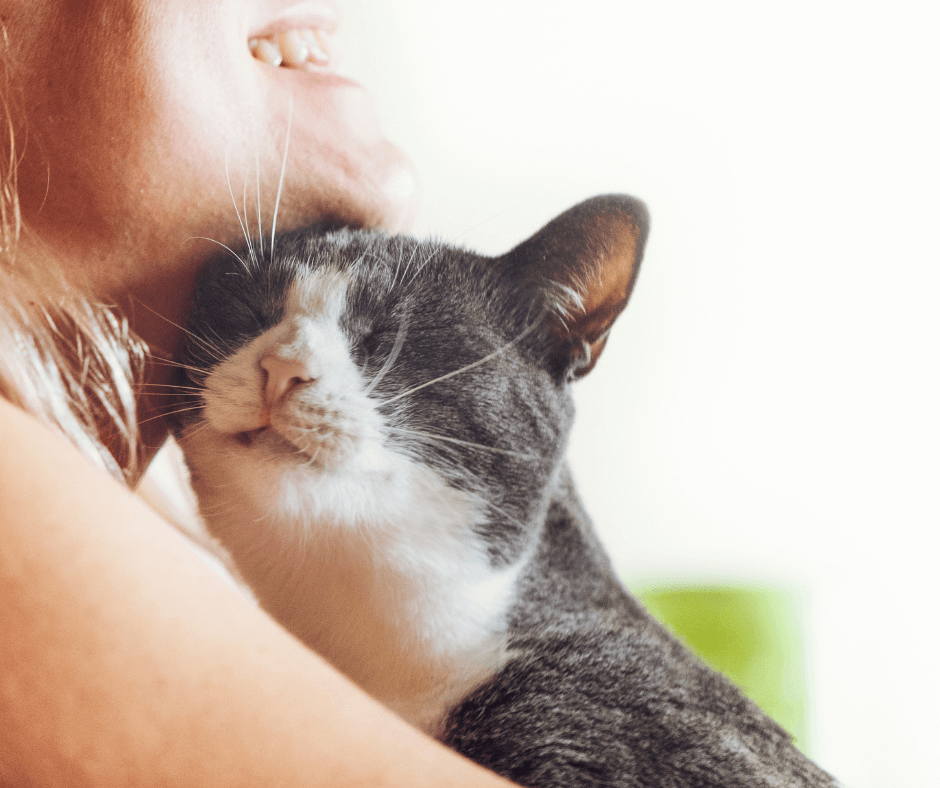Head Bunting — What Does it Mean?

The uniqueness of cats and their quirks has fascinated us for thousands of years. Today we take a look at the curious and adorable behaviour of head bunting. Far from being intentionally aggressive, the head bunt tells us how a cat feels, about us and about themselves.
What is Head Bunting?
Head bunting is also known as head butting or bumping. Under the right set of circumstances, even the most self-sufficient, sophisticated and uncharitable cat will dispense the occasional head bunt. Attempts can be made to solicit a bunt from your cat, but it will most likely occur on their terms. No surprises there.
Scent
A cat has a significant number of scent glands on their body. Many of those scent glands are on their face, and half of those facial glands are on the top of their head – the head bunting territory.
Scent is a big deal to cats. They are territorial creatures that mark their “belongings” with their scent, such as when they rub themselves against you and curl their tail around your legs. So it’s not so much that we own our cats but that they own us. Good to know where we stand.
Other Cats
A cat can detect another cat long before they see them. They possess a superior sense of smell and ability to zone in on another animal’s scent. They “read” a lot into another cat’s scent, such as their age, sex, their intentions, and whether they are looking to reproduce.
An important preliminary step to bringing another cat home is to use scent. Introduce the scent of both the new cat and the existing cat to one another before they see each other. Read more in Prepare Your Home for a New Cat.
So, Why the Head Bunt?
Cats also mark out their family members with their scent; those that they trust and feel safe with. Enter the head bunt, where their scent is generously applied upon you, their guardian. They are displaying a mood of deference; having their face touch yours puts them in a vulnerable position. With closed eyes and bowed heads, their defences are compromised. They willingly lay themselves at your mercy, acknowledging you as leader. Though most cat owners know that this “vulnerable position” can change with dexterity in the blink of an eye, it is a significant gesture on the part of your cat.
In other words, they are saying, “You make me feel safe, I love you.” Or perhaps it’s more like, “You’re okay, I love that you serve me a protein smoothie every night.”
Interestingly, our cat’s intention is to have their scent intermingle with ours. Where do they rest and sleep? More than likely, they tend to favour the places where you or other family members have left their scent. And this happens in feral cat colonies as well, where they will rub against each other, maintaining and confirming they belong to the same colony. This is called allorubbing, and you will notice an increase in scent intermingling after an extended period of separation from your cat.
Head bunting will occur not only with us mere humans, but with other animals as well. Many a wary dog has been left wide eyed and confused as the oft-times scary cat gives them a gentle bunt.
Head Pressing Is Not Bunting
‘Head pressing’ is something very different. If your cat is pushing their head against a wall or anything firm without deriving any pleasure from it, it could indicate something is very wrong. They may or may not display other symptoms, such as trouble walking or loss of sight, and you need to take them to the vet. They. Head pressing can indicate the presence of anything from an infection or disease to liver issues or head trauma including brain tumour and stroke.
So that’s head bunting, one of the multitude of endearing habits of the domestic cat. It’s a signal of trust, security, belonging and, dare we say, love.
